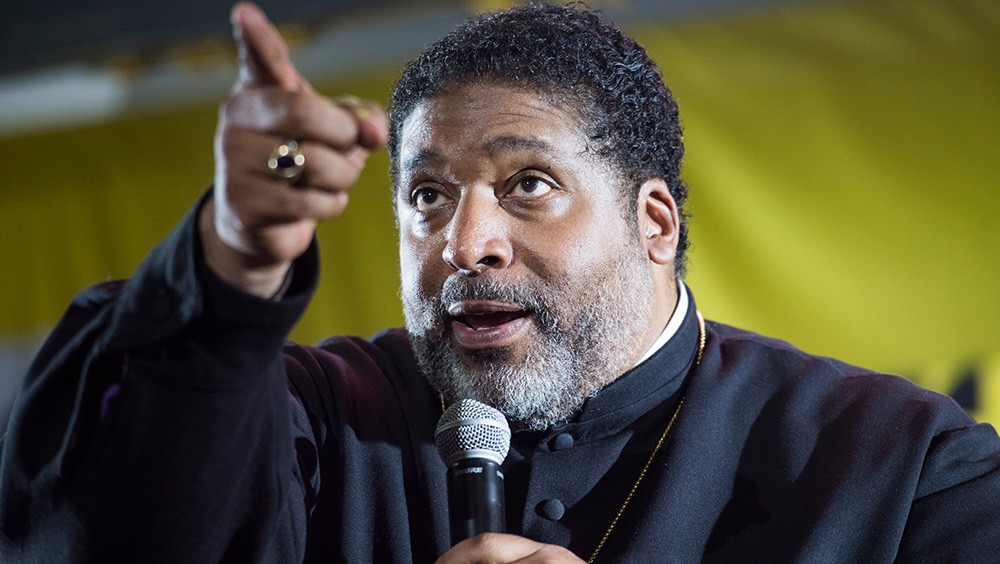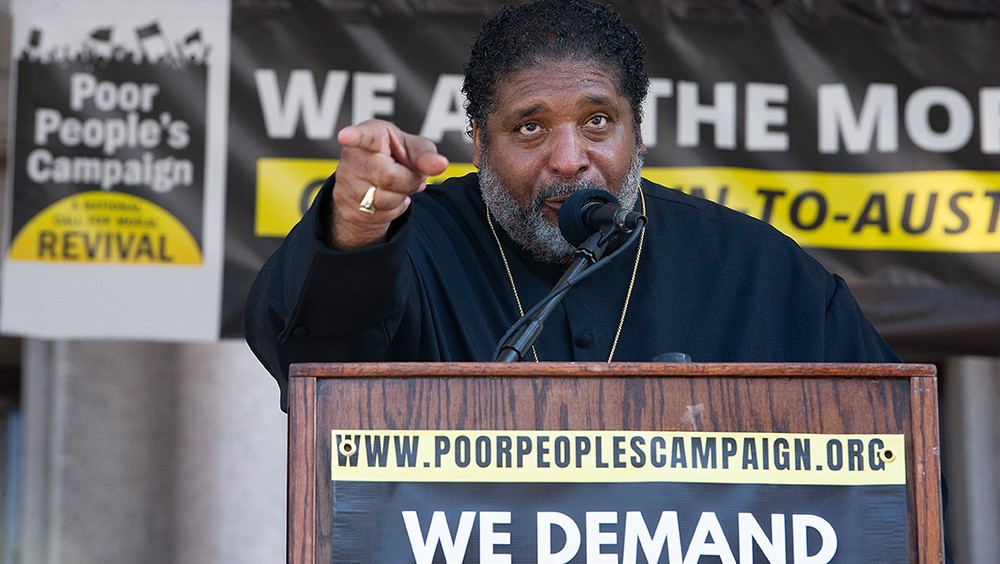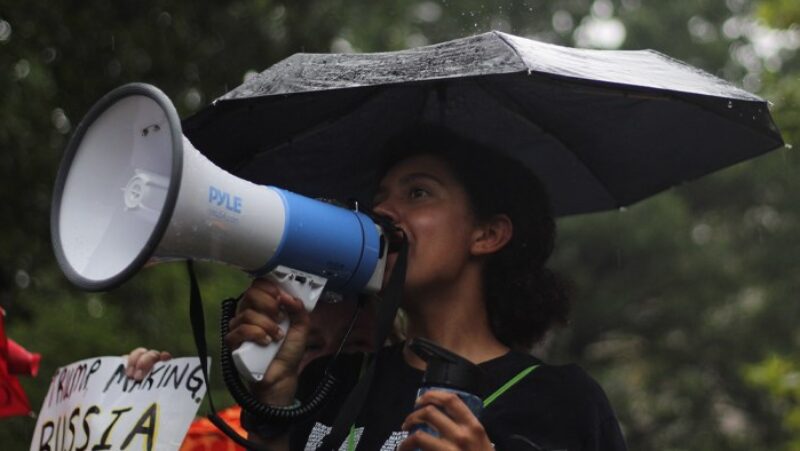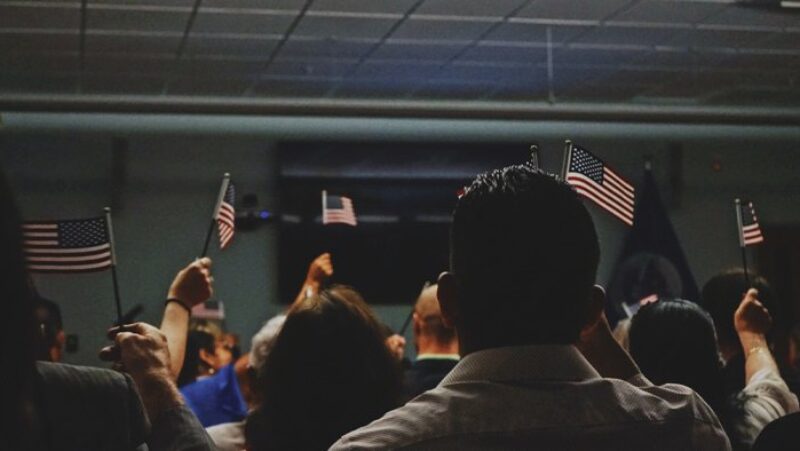Rev. Dr. William J. Barber II: Honoring Decades of Courageous Acts of Free Expression

From praying together, to organizing and marching, to challenging laws in court, activists during the Civil Rights Movement made powerful use of First Amendment freedoms to advocate for equality.
That movement continues today, the legacy of faith-based expression and organizing carried on in part by one man born just two days after the 1963 March on Washington for Jobs and Freedom.
The Rev. Dr. William J. Barber II says he initially wanted to be a lawyer, but he was called to the ministry. Today, Barber is a pastor, civil rights leader and one of Freedom Forum’s 2024 Free Expression Award honorees.
“I'm extraordinarily thankful for that amendment that says, not only do we have the right to free speech, we have the right to protest, we have the right to petition.” – The Rev. Dr. William J. Barber II
The Free Expression Awards are an annual celebration that honors the achievements of First Amendment heroes for their courageous acts of free expression. Freedom Forum is a nonpartisan 501(c)(3) foundation dedicated to fostering First Amendment freedoms for all.
As Barber noted in an interview with Freedom Forum, “Every major transformation of this country, from the ending of slavery to suffrage and voting for women to the Civil Rights Movement to labor rights, only happened when people dare to speak it before it existed.”

Rev. Dr. William J. Barber II speaks at the Texas State Capitol in 2021 to demand federal action on voting rights.
Barber also notes that historically, when people experienced inequality, “people used their speech, their protest, their right to petition their government to change those realities. And I think that pastors have to be at the forefront.”
Barber has exercised and supported freedom of expression as a pastor, public theologian and civil rights leader, appealing to America’s deepest values.
He says that pastors must not only care about the people in their congregations but also about the policies that affect those people.
Barber is founding president of Repairers of the Breach, which helps religious leaders and grassroots activists frame issues in moral terms.
Barber says Repairers of the Breach aims to move past left-right and liberal-conservative divisions to “help groups that want to engage, want to use their right to free speech, want to use their right to protest, but they don't want to be partisan alone. They want to do it from a deeper place.” As such, the group builds broad coalitions.
“If you don't protect everyone's freedom, no one's freedom is protected.” – The Rev. Dr. William J. Barber II
His leadership of the movement-building organization led to the revival of the Poor People’s Campaign, where he serves as co-chair of the antipoverty initiative established in 1967.
As North Carolina’s NAACP president, Barber also organized the Forward Together movement, another broad coalition that made national headlines beginning in 2013 with its “Moral Monday” rallies. Protesters kept up a four-year campaign at the state capitol challenging the state’s policies on aid to the poor, voting rights, living wages, public education and immigrants. The campaign also aimed to bypass partisan divisions. “We said a moral fusion movement, regardless of who's in office, has to take a serious look at what's the state of politics.”
Barber called the "Moral Monday" movement the largest of its kind since the Civil Rights Movement, and it included the largest protest of its kind at the state capitol, even larger than many state-level protests of that earlier era.
The pastor and activist says he has been arrested nearly 20 times during protests “because I refuse to give up my right to free speech, my right to protest. I just won't do it as a matter of faith first and then as a matter of the Constitution.”
On the way to jail, we’re gonna let it shine!
Arrests happening now in Phoenix.#MoralMonday pic.twitter.com/PiBAuL4j30
— Rev. Dr. William J. Barber II (@RevDrBarber) July 26, 2021
Members of the movement may not have been in the political majority in the state, Barber says, but “we had our moral voices.” The group advocated for change, Barber says, because “based on our deepest moral constitutional principles and our deepest moral religious principles, this is the wrong use of government.”
And the group was successful in some petitions for change, including passage of a Racial Justice Act, a death penalty reform law in effect from 2009 to 2013, and an increase in the minimum wage.
As founding director of the Center for Public Theology and Public Policy at Yale Divinity School, Barber is preparing a new generation to forge “a just society both in the academy and in the streets.” He retired after 30 years as pastor of Greenleaf Christian Church in Goldsboro, North Carolina, in 2023.
He has written five books, including his latest, “White Poverty: How Exposing Myths About Race and Class Can Reconstruct American Democracy.”
“If it's worth fighting for, then say it loud, say it long, say it continuously. Say it lovingly, but don't ever get quiet.” – The Rev. Dr. William J. Barber II
The First Amendment Right to Protest Has Limits
4 First Amendment ‘Where America Stands’ findings that surprised experts (and 3 that didn’t)
Related Content

